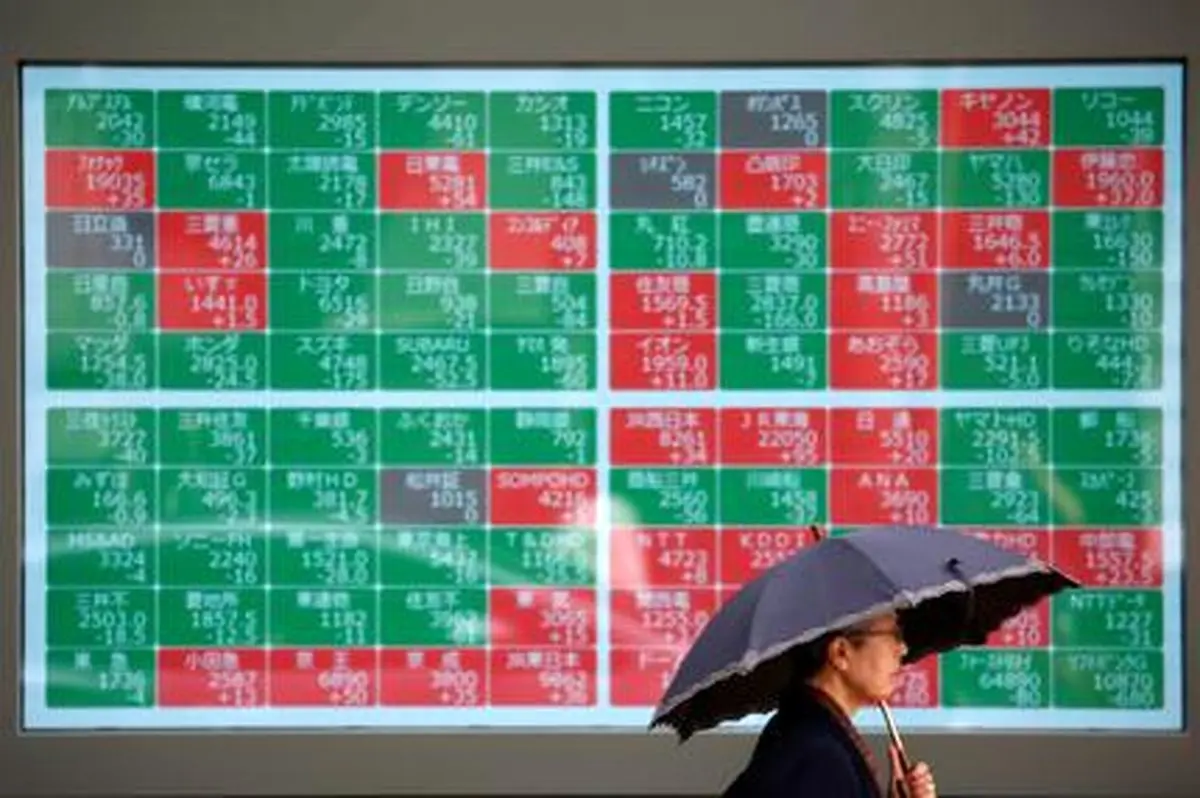Asian shares edge up, trade, geopolitical tensions cap gains

Asian stocks inched higher on Monday, with a rebound in the Hong Kong market helping the mood, as investors remained cautious ahead of a closely-watched Federal Reserve meeting.
But the simmering trade dispute between the United States and China as well as political tensions in the Middle East kept risk-appetite in check.
MSCI’s broadest index of Asia-Pacific shares outside Japan edged up 0.1%, after opening slightly weaker. Japan’s Nikkei average ticked up by a similar amount.
Asian markets got a quick boost after Hong Kong’s Hang Seng Index jumped as much as 1.4%. At the weekend, the territory’s leader Carrie Lam climbed down on a bill that would have allowed extradition to China.
The Hang Seng fell for three sessions in a row through Friday, after the extradition bill triggered mass protests and some of the worst unrest seen in the territory since Britain handed it back to Chinese rule in 1997.
“Last week the issue looked as if it would become another thorny point between the United States and China. As the bill is now being postponed indefinitely, things will likely calm down, which is good for markets,” said Hiroyuki Ueno, senior strategist at Sumitomo Mitsui Trust Asset Management.
U.S. Secretary of State Mike Pompeo told Fox News on Sunday that President Donald Trump would raise the issue of Hong Kong’s human rights with China’s President Xi Jinping at a potential meeting of the two leaders at the G20 summit in Japan later this month.
Wall Street stocks ended lower on Friday as investors turned cautious before this week’s Fed meeting, while a warning from Broadcom on slowing demand weighed on chipmakers and added to U.S.-China trade worries.
Investors are waiting for more clues from the Fed after policymakers raised expectations for a rate cut in recent weeks.
Financial markets were sideswiped by a sudden escalation in Sino-U.S. trade tensions in early May, with growing anxiety among investors that a protracted standoff could tip the global economy into recession.
Geopolitical tensions in the Middle East added another layer of uncertainty after the United States blamed Iran for attacks on two oil tankers in the Gulf of Oman last week.
Hopes that global central banks will keep the money spigots open have helped to temper some of the fears, and all eyes are on the Fed’s two-day meeting starting on Tuesday.
A Reuters poll showed a growing number of economists expect the Fed policymakers to cut interest rates this year, although the majority still see it holding steady.
In currency markets, the dollar index against a basket of six major currencies climbed to 97.583 on Friday, its highest level in almost two weeks, after the U.S. retail sales data eased fears that the world’s largest economy is slowing sharply.
Oil prices rose on Monday after U.S. Secretary of State Pompeo said Washington will take all actions necessary to guarantee safe navigation in the Middle East, as tensions mounted following attacks on tankers last week.
Brent futures rose 0.4% to $62.24 a barrel, while U.S. West Texas Intermediate (WTI) crude futures gained 0.3% to $52.66.
Spot gold was little changed at $1,341.48 an ounce after hitting a 14-month peak on Friday.
Bitcoin jumped overnight to $9,391.85, its highest level in 13 months. It was last quoted at $9,104.64.
END
